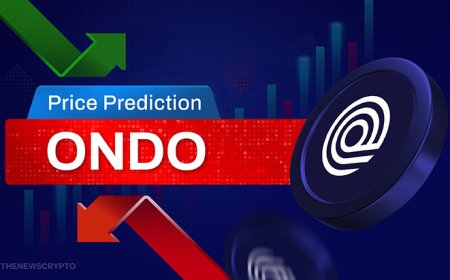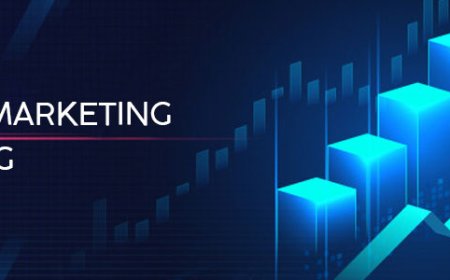Secured Business Loan Secrets for Smarter Funding Strategies

Access to funding can be the difference between a business that thrives and one that struggles to stay afloat. Whether you're looking to expand operations, invest in new equipment, or manage cash flow, finding the right financial solution is crucial. This is where secured business loans come into play, offering a reliable way to unlock the capital you need.
By leveraging assets like property or equipment as collateral, a secured loan provides lenders with added confidence, often resulting in lower interest rates and more flexible terms for you. Its a practical option for businesses aiming to secure substantial funding without the steep costs of unsecured alternatives.
Understanding how secured business loans work and their potential benefits can help you make informed decisions for your enterprise. Knowing whats at stake and how to maximise this opportunity could be the key to achieving your business goals.
Secured Business Loans: A Focus
A secured business loan allows you to borrow money by using your assets as collateral. These assets might include property, vehicles, inventory, or equipment. The lender holds a legal claim over the asset until the loan is fully repaid. This setup reduces the lender's risk and can make it easier for you to secure larger loans or lower interest rates.
When you offer collateral, you demonstrate a willingness to commit valuable resources, which might strengthen your negotiating position for better terms. You could, for example, receive more flexible repayment options or even a longer repayment period. Your loan approval and conditions often depend on the value and type of the assets offered. In the case that your collateral is deemed high-value and reliable, you might secure more favourable terms.
This type of financing can suit businesses across various industries. You might run a manufacturing company seeking capital to purchase updated machinery or a retail store needing funds to expand inventory during peak seasons. Some lenders also allow you to use intangible assets like intellectual property as collateral. Demonstrating the strength of these assets will likely enhance your application process.
Secured business loans might also help improve your creditworthiness in the long run. Timely repayment can positively impact your business credit profile. Many borrowers use these loans to consolidate high-interest debt, manage cash flow gaps, or invest in growth opportunities. Access to funding secured against your resources can be a pragmatic choice for resilience or expansion.
In some cases, lenders require an independent valuation of your assets or additional documentation to assess the risk. Your readiness to provide such information often shapes how efficiently your application progresses. By aligning the loan's purpose with your business strategy, youll find the funding can act as a stepping stone towards your objectives.
Key Features Of Secured Business Loans
Collateral Requirements
Secured business loans hinge on collateral. You provide assets like property or machinery to instil lender confidence. Tangible assets, such as equipment or real estate, often hold stronger appeal. In some cases, intangible assets like patents might qualify, but their valuation can require deeper assessment. Your commitment through collateral minimises lending risk, unlocking potential for better terms while tying obligations directly to your pledged asset.
Loan Amounts And Interest Rates
Loan amounts typically scale with asset value. Larger loan requests often rely on high-value collateral. Interest rates, however, usually remain lower as your collateral mitigates lender risk. Your loan amount might fluctuate if asset valuation shifts during processing. Lenders tend to offer competitive rates, ensuring secured loans remain a flexible financial tool. This structure often helps businesses access significant funds without excessive repayment costs.
Repayment Terms
Repayment terms often vary, offering both short-term and long-term options. Longer terms could assist cash flow planning, but shorter terms might reduce overall interest payments. You can choose fixed or variable repayment schedules, tailored to your revenue streams. Missed repayments risk asset seizure, so aligning terms with business capabilities should guide your decisions. Flexibility in timelines ensures you adapt repayment strategies to varying financial scenarios.
Benefits Of Secured Business Loans
Secured business loans offer significant advantages, allowing you to address financial needs while leveraging your assets. By aligning terms with your goals, you will find these loans enhance both flexibility and growth potential.
Lower Interest Rates
Secured loans often carry reduced interest rates because the collateral minimises the lender's risk. You will benefit from these lower costs, especially when borrowing larger amounts. Tangible assets like property or high-value equipment make this possible by offering security to the lender. These lower rates improve affordability and allow you to allocate savings toward other investments.
Higher Loan Limits
When you provide valuable assets as collateral, lenders are inclined to approve larger amounts. Assets such as vehicles, machinery, or property increase borrowing capacity by representing a safety net for repayments. You might find this useful if youre expanding operations, buying new inventory, or managing seasonal cash flow. Higher limits give businesses room for significant investment opportunities.
Flexible Repayment Options
Secured business loans come with adaptable repayment structures, allowing alignment with your cash flow and revenue cycle. You may choose from long-term stretches or shorter obligations, depending on your financial outlook. This flexibility means you can balance repayments with ongoing expenses, ensuring steady growth without compromising operational stability.
Risks And Challenges
Secured business loans can unlock many opportunities, but there are inherent risks and challenges you might face. Carefully evaluating the details helps you mitigate these potential downsides and strengthen your financial decisions.
Collateral Loss Risk
Using assets as collateral introduces the possibility of losing them if your repayment terms are unmet. Lenders have the legal right to seize and liquidate the pledged assetwhether its property, equipment, or vehiclesto recover their funds. For instance, if you secure a loan with a vehicle fleet and experience financial instability, those vehicles might be repossessed. This could disrupt operations, leading to further difficulties. The loss of critical assets can have long-term implications, so you must thoroughly assess your ability to meet payment obligations before proceeding.
Strict Eligibility Criteria
Secured loans often involve stringent qualifications, which might include high-value collateral and solid credit history. You will find that lenders assess your credit score, revenue consistency, and overall financial health comprehensively. In the case that your business has fluctuating income or a limited track record, approval might be challenging. Additionally, valuation of assets might also delay or complicate the process. For example, if you offer intellectual property as collateral, the lender might demand extensive documentation to establish its worth. Structured preparation ensures you meet these requirements smoothly.
How To Apply For A Secured Business Loan
Securing a business loan involves careful preparation and strategic choices. Each step requires attention to detail, ensuring your application stands out to lenders.
Preparing Your Documentation
Gathering the right documents forms the backbone of your application. Youll typically need financial statements, tax returns, and detailed collateral information. In the case that your business has a legal entity, such as an incorporated company, include registration certificates. Lenders might request a business plan, so ensure it outlines goals, revenue projections, and planned use of funds. When your financial records show consistent income trends, your lenders confidence increases. Incomplete documentation could delay approval, so double-check requirements.
Choosing The Right Lender
Identifying the best lender involves comparing options based on your needs. Research lenders specialising in secured loans and assess their terms, interest rates, and collateral preferences. Youll find some institutions focus on specific industries or business sizes. In the case that a lender's criteria align closely with your collateral and financial profile, approval odds improve. Online reviews and testimonials might guide your choice, but direct consultations often provide clarity. Select a lender offering transparent conditions and strong communication to ensure smooth collaboration.
Loan Application Process
The application process begins with initial contact and submitting your forms, documentation, and proposal. After this, the lender evaluates your financial health, collateral, and business viability. You may receive requests for supplementary data if your application leaves gaps. Collateral appraisal might follow, ensuring its value aligns with the borrowing amount. Once approved, signing loan agreements and fulfilling disbursement prerequisites complete the process. Keep your communication clear throughout, as delays can arise when responses take longer to address lender concerns.
Final Thoughts
Secured business loans can be a powerful tool for driving growth and maintaining financial stability when used strategically. By leveraging your assets, you can access tailored funding solutions that align with your business goals while benefiting from competitive terms and flexible repayment options.
However, its essential to approach this financing option with careful planning and a clear understanding of the risks involved. Preparing thoroughly and selecting the right lender will strengthen your position and increase your chances of success.



































